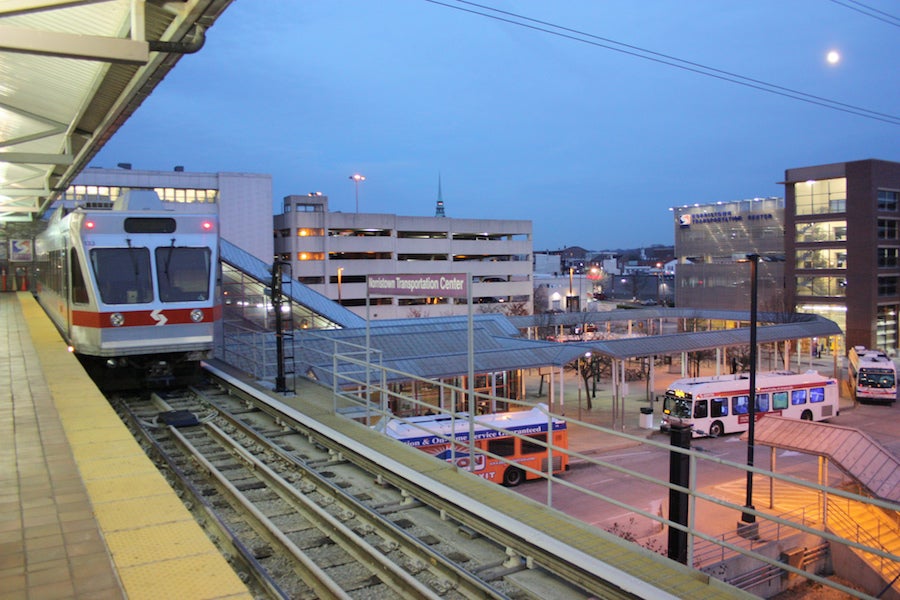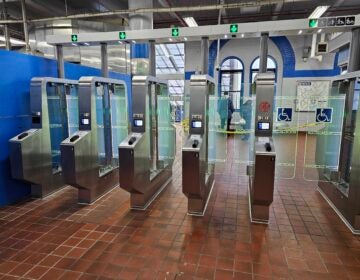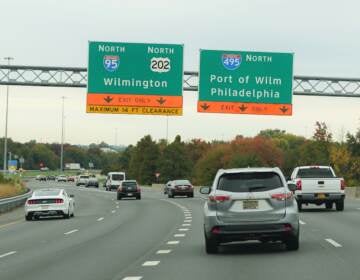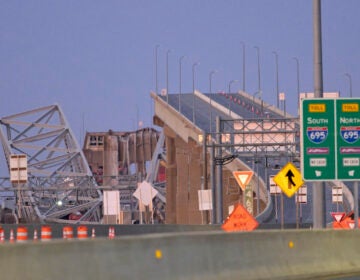Trump strategy may pose threat to King of Prussia rail

A major spending policy reversal by the Federal Transit Administration (FTA) over a tunnel underneath the Hudson River may signal derailments to SEPTA’s own infrastructure projects, some experts say.
Late last week, President Donald Trump formally revoked an Obama administration pledge to have the federal government cover half the cost of a series of rail infrastructure upgrades in and around New York City, including a $12.9 billion proposal to build a new Amtrak tunnel under the Hudson River and rehabilitate the existing tunnel.
In a letter responding to an updated proposal from the New Jersey and New York officials planning the multiphase Gateway program, FTA Deputy Administrator K. Jane Williams overturned a 2015 agreement between the Department of Transportation, the states and the Port Authority.
“There is no such agreement,” Williams wrote. “We consider it unhelpful to reference a non-existent ‘agreement’ rather than directly address the responsibility for funding a local project where 9 out of 10 passengers are local transit riders.”
The specific reference to a “local project” and “local transit riders” suggests a significant policy shift from an Obama-era FTA, which eagerly supported the construction of new light rail and other local transit projects across the United States.
The change could mean big problems for SEPTA’s proposed $1.1 billion extension of the Norristown High Speed Line (NHSL) to King of Prussia. The perennially cash-strapped transit agency’s long-term capital budget assumes that the federal government will pick up half of the four-mile project’s tab.
R. Richard Geddes runs the Cornell Program in Infrastructure Policy at Cornell University. He calls the FTA letter “a signal of a bit more of tough bargaining in the relationship between the federal government, and the state and locals.”
“This letter suggests more scrutiny — certainly a higher level of scrutiny than maybe the previous administration had,” says Geddes.
SEPTA’s project would connect the King of Prussia mall and surrounding office parks with the Norristown Transportation Center, a transit link that local boosters say would alleviate traffic, generate 1,200 new jobs and spur real estate development. “You are talking a major potential impact on our region,” says Josh Sevin, acting executive director of the Economy League of Greater Philadelphia. “King of Prussia is the largest employment center [in the region] outside of Center City, and to not have a transit connection there is leaving a lot on the table.”
Sevin considers the FTA letter just the latest example of an ongoing evolution in how the U.S. finances transportation projects. For years now, revenues from the fuel taxes that fund much of the federal government’s transportation spending have declined, thanks in large part to improved fuel efficiency standards. Since coming into office, Trump has sent mixed signals about funding transportation, calling for more spending infrastructure on airports and roads on one hand while proposing the elimination of transit supports such as the FTA’s “New Starts” grant program, which covers up to half of the construction costs of new transit projects. Though the budget eventually passed by Congress made no significant changes to federal transportation funding and spared New Starts, a vision for his anticipated infrastructure bill floated in December rewarded states and localities that raise their own taxes or other revenues for new projects with more federal funds.
That’s a move that some academics would applaud, as it would arguably better align spending decisions with those who have to pay for them. Under the current system, they argue, local officials end up building highways and rail lines they don’t really need because they don’t have to cover all the costs. “At the end of the day, the people that use them — that benefit for them the most — really wouldn’t pay for them to be there,” Prof. Erick Guerra, a fellow at the University of Pennsylvania’s Institute for Urban Research, previously told PlanPhilly.
But it would cause pain for many states and localities in the interim. While some states have increased fuel taxes to bolster transportation budgets in recent years — including Pennsylvania, which passed Act 89 in 2013 — many have lagged behind.
SEPTA, for its part, says it is not worried yet about changes in federal transportation funding. The agency is just about to start work on its financial plan for the King of Prussia extension, which it won’t submit to the FTA until 2019 or 2020. “From our side, the timing actually works out,” said Liz Smith, SEPTA’s director of strategic planning and partnerships. “If we’re looking to see a shift in the way that federal government funds transportation, the fact that for King of Prussia we’re just getting ready to begin the 20-year financial plan is actually a good thing, because we can address those concerns and those issues within that analysis and within that plan itself.”
Still, SEPTA would be left in a particularly challenging situation if the federal government significantly curtailed transit infrastructure spending. SEPTA, a regional authority, depends mostly on state funding, and efforts to increase taxes to cover the shortfall in federal dollars would face significant headwinds from politicians outside the region, especially so soon after the passage of Act 89. Locally, the ability of the counties covered by SEPTA to raise taxes are constrained by state law, and policy coordination among the five Pennsylvania counties (not to mention New Jersey and Delaware) would be difficult.
Montgomery County Commissioner Chair Val Arkoosh did not respond to a request for comment.
Matt Mitchell, vice-president of the Delaware Valley Association of Rail Passengers (DVARP), among others, cautioned against reading too much into the FTA’s letter, noting that the Gateway project is a “once in a century” project, whereas the NHSL extension is more “routine.”
That said, “the King of Prussia project is a lot like the Gateway Project in that both of them are the most significant rail projects in their respective regions,” he noted.
Others have suggested that the Trump administration’s decision to renege on the Obama-era deal may have more to do with politics than policy. By revoking the funding promise, Trump would gain leverage over Sen. Charles Schumer (D-NY), the Senate Minority Leader and an outspoken proponent of the Gateway project, in advance of negotiations over an infrastructure bill. The infrastructure bill would require Democratic votes to pass the Senate, and including earmarks for the Hudson tunnel could sway Schumer to back it.
There’s only one problem with that analysis, says Rep. Brendan Boyle (D – Pa. 13th): “There is no infrastructure bill — there is nothing from the administration,” said Boyle.”Now a year in to this administration, I’m incredibly disappointed that there has been absolutely no follow up on any of the infrastructure ideas Trump talked about as a candidate.”
Or the move could simply be personal. “The reality is, President Trump is known as a pretty petty guy, as he continues to exhibit on Twitter on a daily basis,” said Boyle. “So could this just be a case of wanting to stick it to New Jersey and New York, where he isn’t popular? Yes, that could be a possibility.”
If the Gateway funding reversal was just political posturing or petty partisanship, and not part of a larger policy change, that might bode better for SEPTA. The transit authority is chaired by a Republican, Pasquale Deon Sr., and the NHSL crosses through Republican Rep. Patrick Meehan’s 7th Congressional District. Meehan did not respond to a request for comment. Pennsylvania also voted for Trump.
Rep. Dwight Evans (D-Pa. 2nd) says he remains optimistic that the extension will get funded and built, noting that he spoke with Rep. Bill Shuster (R – Pa. 9th) about the project’s importance last month. Since then, Shuster, the chair of the House Transportation and Infrastructure Committee, announced his decision not to seek reelection in 2018. In that announcement, Shuster said he planned to devote the remainder of his term to passing an infrastructure spending bill.
While the Trump administration has kept mum on specifics for its infrastructure bill, it has called for streamlining environmental regulations in transportation construction. SEPTA started projected scoping for the King of Prussia extension in 2012 and now hopes to finalize its environmental impact statement by the end of 2019. The name of that regulatory document, which will run well over 600 pages long, is a bit of a misnomer: “environmental” doesn’t mean just flora, fauna and emissions, but the projects impact on traffic, safety, transit ridership, local businesses, and residents.
Press play to hear Jim Saksa tell the story on Newsworks Tonight.
WHYY is your source for fact-based, in-depth journalism and information. As a nonprofit organization, we rely on financial support from readers like you. Please give today.






